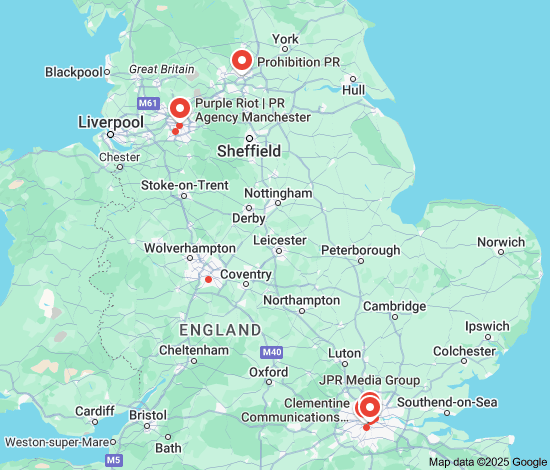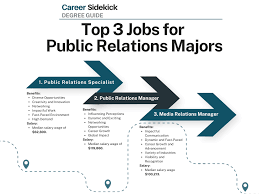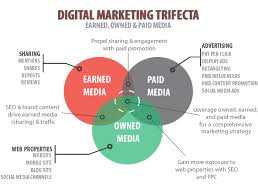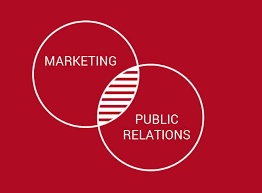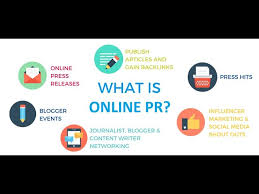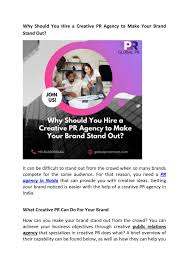Elevating the Industry: The Impact of Entertainment PR Firms
Entertainment PR Firms: Elevating the Industry
In the fast-paced and dynamic world of entertainment, Public Relations (PR) firms play a crucial role in shaping the public image of celebrities, artists, films, TV shows, and other entertainment entities. These specialised agencies are dedicated to promoting and managing the reputation of their clients in the ever-evolving media landscape.
Entertainment PR firms are adept at creating buzz, generating publicity, and managing crises to ensure that their clients remain in the spotlight for all the right reasons. From red carpet events to social media campaigns, these firms utilise a range of strategies to engage audiences and build a strong brand presence for their clients.
One of the key functions of entertainment PR firms is to secure media coverage for their clients across various platforms, including print, online, broadcast, and social media. By leveraging their relationships with journalists, influencers, and industry insiders, these firms can amplify their clients’ visibility and reach a wider audience.
Besides traditional media outreach, entertainment PR firms also excel in digital marketing and social media management. They harness the power of platforms like Instagram, Twitter, Facebook, and TikTok to create engaging content that resonates with fans and followers. Through strategic campaigns and partnerships with online influencers, these firms can drive conversations and generate excitement around their clients.
Furthermore, entertainment PR firms are skilled in crisis communication and reputation management. In an industry where controversies can arise at any moment, these agencies are trained to respond swiftly and effectively to protect their clients’ image and mitigate any negative impact on their careers.
Overall, entertainment PR firms play a vital role in elevating the industry by shaping narratives, building relationships with key stakeholders, and enhancing the visibility of their clients. Their expertise lies in crafting compelling stories that captivate audiences and enhance brand loyalty in an increasingly competitive market.
Whether it’s launching a new film or managing a celebrity’s public persona, entertainment PR firms are essential partners for navigating the complex world of show business. With their strategic insights and creative flair, these agencies continue to set new standards for excellence in public relations within the entertainment sector.
Understanding Entertainment PR Firms: Services, Strategies, and Career Paths
- What services do entertainment PR firms offer?
- How do entertainment PR firms help celebrities and artists?
- What is the role of social media in entertainment PR?
- How do entertainment PR firms handle crisis communication?
- What strategies do entertainment PR firms use to generate publicity?
- How can a film benefit from working with an entertainment PR firm?
- Do entertainment PR firms work with influencers and bloggers?
- What sets top-tier entertainment PR firms apart from others?
- How can one pursue a career in the field of entertainment PR?
What services do entertainment PR firms offer?
Entertainment PR firms offer a comprehensive range of services tailored to meet the unique needs of clients in the entertainment industry. These specialised agencies provide strategic media planning, press release writing and distribution, red carpet event coordination, talent management, crisis communication, social media strategy development, influencer partnerships, brand collaborations, media training for clients, reputation management, and overall brand positioning. By leveraging their expertise and industry connections, entertainment PR firms help their clients navigate the competitive landscape of show business and elevate their visibility through targeted communication strategies that resonate with audiences.
How do entertainment PR firms help celebrities and artists?
Entertainment PR firms play a vital role in supporting celebrities and artists by strategically managing their public image, enhancing their visibility, and building strong brand presence. These specialised agencies work closely with their clients to craft compelling narratives, secure media coverage, and create engaging content that resonates with fans and followers. From organising press events to handling social media campaigns, entertainment PR firms utilise a range of tactics to generate positive publicity and maintain a favourable public perception for celebrities and artists. By leveraging their expertise in media relations, crisis communication, and digital marketing, these firms help their clients navigate the complexities of the entertainment industry and achieve long-term success in a competitive landscape.
What is the role of social media in entertainment PR?
Social media plays a pivotal role in entertainment PR by serving as a powerful tool for engaging audiences, building brand presence, and amplifying the reach of clients in the industry. Entertainment PR firms leverage social media platforms such as Instagram, Twitter, Facebook, and TikTok to create compelling content, interact with fans, and generate buzz around their clients’ projects. By crafting strategic campaigns and collaborating with online influencers, these firms can effectively showcase their clients’ talents, events, and achievements to a global audience in real-time. Social media also enables entertainment PR professionals to monitor trends, gather feedback, and adapt their strategies to ensure maximum impact and resonance with target demographics. In essence, social media has revolutionised the way entertainment PR operates, providing a direct channel for storytelling, engagement, and community-building within the dynamic landscape of show business.
How do entertainment PR firms handle crisis communication?
Entertainment PR firms are well-versed in handling crisis communication with finesse and expertise. When faced with a crisis, these specialised agencies act swiftly to assess the situation, develop a strategic response plan, and communicate effectively with all stakeholders. They utilise their strong relationships with the media to control the narrative and mitigate any negative impact on their clients’ reputation. By crafting carefully tailored messages, managing media inquiries, and providing transparent updates, entertainment PR firms work diligently to navigate crises and protect their clients from potential harm. Their proactive approach and quick thinking enable them to address issues head-on, restore trust, and safeguard their clients’ image in the fast-paced world of show business.
What strategies do entertainment PR firms use to generate publicity?
Entertainment PR firms employ a variety of strategic approaches to generate publicity and enhance the visibility of their clients in the competitive entertainment industry. These firms leverage a combination of traditional media outreach, digital marketing tactics, influencer partnerships, and event planning to create buzz and capture audience attention. By securing media coverage across diverse platforms, crafting engaging social media campaigns, collaborating with online influencers, and organising high-profile events, entertainment PR firms effectively amplify their clients’ presence and ensure they remain in the spotlight for all the right reasons.
How can a film benefit from working with an entertainment PR firm?
Collaborating with an entertainment PR firm can offer numerous advantages to a film seeking to enhance its visibility and success. By partnering with a specialised agency, a film can benefit from strategic media campaigns that generate buzz, increase audience engagement, and drive ticket sales. Additionally, an entertainment PR firm can secure valuable press coverage across various platforms, including traditional media outlets and digital channels, helping to reach a wider audience and build anticipation for the film’s release. Moreover, these firms excel in managing red carpet events, film premieres, and other promotional activities that elevate the film’s profile and create lasting impressions on both industry insiders and the general public. Ultimately, working with an entertainment PR firm can provide a film with the expertise and resources needed to navigate the competitive landscape of the entertainment industry and maximise its impact on viewers.
Do entertainment PR firms work with influencers and bloggers?
Entertainment PR firms often collaborate with influencers and bloggers to amplify their clients’ reach and engagement in the digital space. By partnering with popular personalities who have a strong following on platforms like Instagram, YouTube, and TikTok, these firms can leverage their influence to promote events, products, or talent within the entertainment industry. Influencers and bloggers provide a valuable channel for reaching target audiences in a more authentic and relatable manner, helping entertainment PR firms to create buzz and generate excitement around their clients’ projects.
What sets top-tier entertainment PR firms apart from others?
When it comes to distinguishing top-tier entertainment PR firms from the rest, it often boils down to a combination of factors that set them apart. These elite firms typically have a proven track record of success in managing high-profile clients and executing impactful campaigns that resonate with audiences. Their deep industry knowledge, extensive network of contacts, and strategic approach to communication strategies are key elements that contribute to their exceptional reputation. Moreover, top-tier entertainment PR firms demonstrate unparalleled creativity, adaptability to changing trends, and a keen understanding of the nuances of the entertainment industry, enabling them to consistently deliver outstanding results that elevate their clients’ brand presence and reputation to new heights.
How can one pursue a career in the field of entertainment PR?
For those aspiring to pursue a career in the field of entertainment PR, there are several key steps to consider. A strong foundation in communication, public relations, or a related field is essential, along with a passion for the entertainment industry. Gaining relevant experience through internships or entry-level positions at PR agencies, entertainment companies, or media outlets can provide valuable insights and networking opportunities. Building a diverse portfolio showcasing successful campaigns and projects is crucial for demonstrating skills and expertise to potential employers. Additionally, staying informed about industry trends, attending networking events, and seeking mentorship from seasoned professionals can help aspiring individuals carve out a successful career path in entertainment PR.



